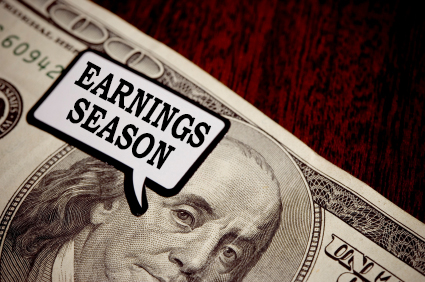Talking Money: Earnings season

By Katie Gessert
When we were schoolchildren, we received quarterly report cards from our teachers to mark our progress. In the grand scheme of our lives, these reports were relatively insignificant. Similarly, when a company releases its quarterly earnings results, investors need to look at the larger picture.
Earnings season is when companies report sales and earnings. For most companies, the season begins a couple of weeks after the end of each calendar quarter, so in January, April, July, and October. Through press releases, conference calls and – a few weeks later – more detailed 10-Q reports filed with the Securities and Exchange Commission, companies disclose the status of their earnings.
Talking Money
To foster financial literacy, the Talking Money feature covers common terms and concepts used in personal finance and investing. For more Talking Money terms, please click here.
Earnings are important to investors. Along with interest rates, earnings are the key drivers of stock performance over time.
“Whether you’re buying the stock for a dividend payment or for capital appreciation, earnings growth is really what’s going to be critical, and really, earnings growth is the main catalyst for stock prices,” says Dave Sandstrom, vice president and investment advisor at Landaas & Company.
When you buy stock, you are investing in the future earnings stream of a company. The earnings reports let shareholders monitor performance, learn of conditions affecting the business as well as see future estimates.
How company reports match up with analyst expectations can often cause volatile trading for stocks, especially when reports surprise analysts. But don’t put too much weight on analyst numbers. An examination by the Wall Street Journal suggests that companies often guide analysts to lower expectations closer to earnings season. As a result, 75% of the companies in the S&P 500 index regularly meet or exceed analyst forecasts.
Investors should remember that earnings reports are mostly backward looking and focus on the short term. Dwelling on quarterly results is not a good way to prepare your portfolio for the future.
Even so, quarterly earnings reports can provide valuable information. They give shareholders the ability to evaluate a company’s current financial position and where it potentially is heading in the future. For instance, consistently poor reports might be an indicator that the investment could be in jeopardy. You can get a sense of earnings trends – whether the company is on a growth trajectory or decline.
Of course, holding stocks in pooled mutual fund accounts helps protect your portfolio against the volatility that earnings reports can generate for any single stock. In that case, a poor earnings report for one company would not have such a major impact on your portfolio.
“The mutual fund is going to diversify your risk,” Dave explains, “and the fact that you own many companies takes some pressure off of those individual earnings reports.”
Owning a mutual fund also increases the importance of paying attention to broader trends within the markets as opposed to individual company reports. It is important to maintain a long-term focus, not to dwell on an earnings report for one quarter.
“I think what’s important is that we’re forward looking,” Dave says. “Keep your eye on the horizon. Looking backwards at earnings in the past is kind of like driving looking through the rearview mirror. I think it’s important for an investor to develop a plan, stick to it and then reallocate when those balances grow outside of your comfort zone.”
Katie Gessert is a finance intern at Landaas & Company. She is a finance major at Marquette University.
More information
What to make of earnings season, a Money Talk Video with Dave Sandstrom
Stocks: Long-term, consistent returns, a Money Talk Video with Dave Sandstrom
Mutual Fund 101, a Money Talk Video playlist
What Investors Need to Know About Earnings Season, from the Financial Industry Regulatory Authority
(initially posted Aug. 24, 2016)
More information and insight from Money Talk
Money Talk Videos
Follow us on Twitter.
